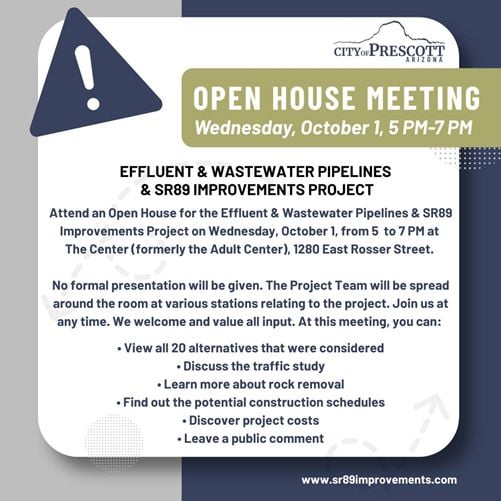In truck accident cases, liability refers to legal responsibility for the crash. If a party’s negligence contributed to the accident, they can be held financially accountable for damages.
However, truck accidents are far more complex than regular car crashes. Due to the sheer size and weight of commercial trucks, these accidents often involve severe injuries, costly damages, and
In this article, we’ll break down who can be held liable and how to prove negligence in a truck accident claim.
Potential Liable Parties in a Truck Accident
Truck accidents can involve several responsible parties, depending on the circumstances. Here’s a breakdown of who may be liable and why:
1. Truck Driver
Truck drivers operate under immense pressure, spending long hours on the road to meet tight deadlines. While many follow regulations, some take risks that can lead to serious accidents.
Some of the most common causes of truck driver negligence are:
- Distracted Driving
- Speeding and Reckless Driving
- Driving Under the Influence
- Fatigue and Hours-of-Service Violations
When a truck driver’s negligence leads to an accident, they can be held liable. However, determining fault often requires gathering strong evidence and investigating all possible causes.
2. Trucking Company
Trucking companies can also be held liable for accidents if they engage in unsafe practices.
Negligent hiring is a major issue. Some companies employ inexperienced drivers without proper training, increasing the risk of accidents.
Many also push drivers to meet tight deadlines, leading to fatigue. When truckers exceed legal driving hours, their reaction times slow, making crashes more likely.
Poor vehicle maintenance is another problem. Skipping inspections or delaying repairs can cause brake failures, tire blowouts, or steering malfunctions—each capable of causing serious accidents.
Ignoring federal safety regulations, such as logging driver hours and routine inspections, further proves negligence. When companies fail to follow these rules, they can be held accountable for the harm they cause.
3. The Truck Manufacturer or Parts Supplier
If a mechanical failure caused the accident, the manufacturer of the truck or its parts may be responsible.
For example, defective brakes could prevent a truck from stopping in time, leading to a crash. Faulty steering components might cause the driver to lose control, while tire blowouts due to manufacturing defects can result in rollovers.
In these cases, the manufacturer or parts supplier may be held liable if the defect was due to poor design, production flaws, or failure to warn about potential risks.
4.The Cargo Loading Company
Not all truck accidents stem from driver mistakes. In some cases, improper cargo loading plays a major role.
For example, an overloaded truck puts excessive strain on the brakes and tires, making it harder to stop in time and increasing the risk of a rollover.
Similarly, unsecured cargo can shift unexpectedly during transit, throwing off the truck’s balance and causing sudden swerving or jackknifing.
If hazardous materials are involved, improper handling can lead to spills, fires, or even explosions, putting everyone on the road at risk.
When these unfortunate events take place, the liability may extend to the cargo loading company or other third parties responsible for securing the load.
5. Third-Party Maintenance Companies
Trucking companies often rely on third-party maintenance providers to keep their vehicles in safe operating condition.
However, when these providers fail to do their job, they can be held accountable for accidents caused by mechanical failures.
Missed inspections are a major issue. If a maintenance company neglects routine inspections, a preventable issue can turn into a catastrophic failure on the road.
Using substandard parts to cut costs can also put everyone at risk. This is because cheap or defective replacement components, like brake pads or tires, can wear out faster than expected, increasing the chances of a serious accident.
6. Government Entities and Road Maintenance Authorities
Road conditions play a major role in truck accidents. When highways and streets are not properly maintained, even the most skilled truck drivers may struggle to avoid an accident.
In some cases, government agencies responsible for road upkeep can be held liable for failing to address known hazards.
Comparative and Shared Liability in Truck Accidents
Sometimes, multiple parties share liability. Comparative negligence laws determine how compensation is awarded when both the truck driver and the other driver are partially at fault.
For example, in Massachusetts, if you’re found 20% at fault, your compensation is reduced by 20%. However, if you are 51% or more at fault, you cannot recover damages.
A Boston truck accident lawyer can assess your level of liability and help you build a strong case. This is done through a thorough investigation, including reviewing evidence like accident reports, black box data, and witness statements.
By presenting clear proof of negligence, an attorney can work to minimize your share of fault and maximize your compensation.
Another legal concept, vicarious liability, holds trucking companies responsible for their drivers’ actions. Even if a trucker caused the crash, the company may still be liable for negligence.
Legal Options for Victims of a Truck Accident
If you’ve been in a truck accident, you may be entitled to compensation. There are two main ways to seek damages.
The first step is filing an insurance claim. Trucking companies carry large insurance policies, which should cover medical expenses, lost wages, and property damage.
If the insurance company refuses to offer a fair settlement, the next option is filing a personal injury lawsuit. Taking the case to court may be necessary if the insurer denies your claim or offers significantly less than what you deserve.
The damages you may be entitled to include:
- Medical expenses
- Lost wages and reduced earning potential
- Property damage
- Pain and suffering from physical injuries and emotional distress.
- Wrongful death claims
Why You Need a Truck Accident Lawyer
Trucking companies don’t play fair when it comes to accident claims. Their insurers use aggressive defense tactics to avoid paying victims what they deserve.
A truck accident lawyer can:
- Identify all liable parties to maximize your compensation.
- Negotiate with insurers to prevent lowball settlement offers.
- Gather crucial evidence, including black box data and trucking records.
- Navigate federal trucking laws to prove violations that contributed to the crash.
Having an experienced lawyer on your side levels the playing field, ensuring you receive the compensation needed for your recovery and future well-being.
If you are looking for a reliable legal team, DiBella Law Injury and Accident Lawyers can help. They offer free consultations and work on a contingency fee basis. This means you pay nothing unless they win your case.
Final Thoughts
Truck accident liability is complex, with multiple parties potentially at fault. Whether it’s the driver, trucking company, or another entity, holding the right parties accountable is key to securing fair compensation.
If you or a loved one has been injured in a truck accident, take action immediately. Legal representation can make all the difference.
As always, drive safely!
How useful was this article ?
Click on a star to rate it!
Average rating 0 / 5. Vote count: 0
No votes so far! Be the first to rate this post.
We are sorry that this post was not too useful for you!
Let us improve this post!
Tell us how we can improve this post?















